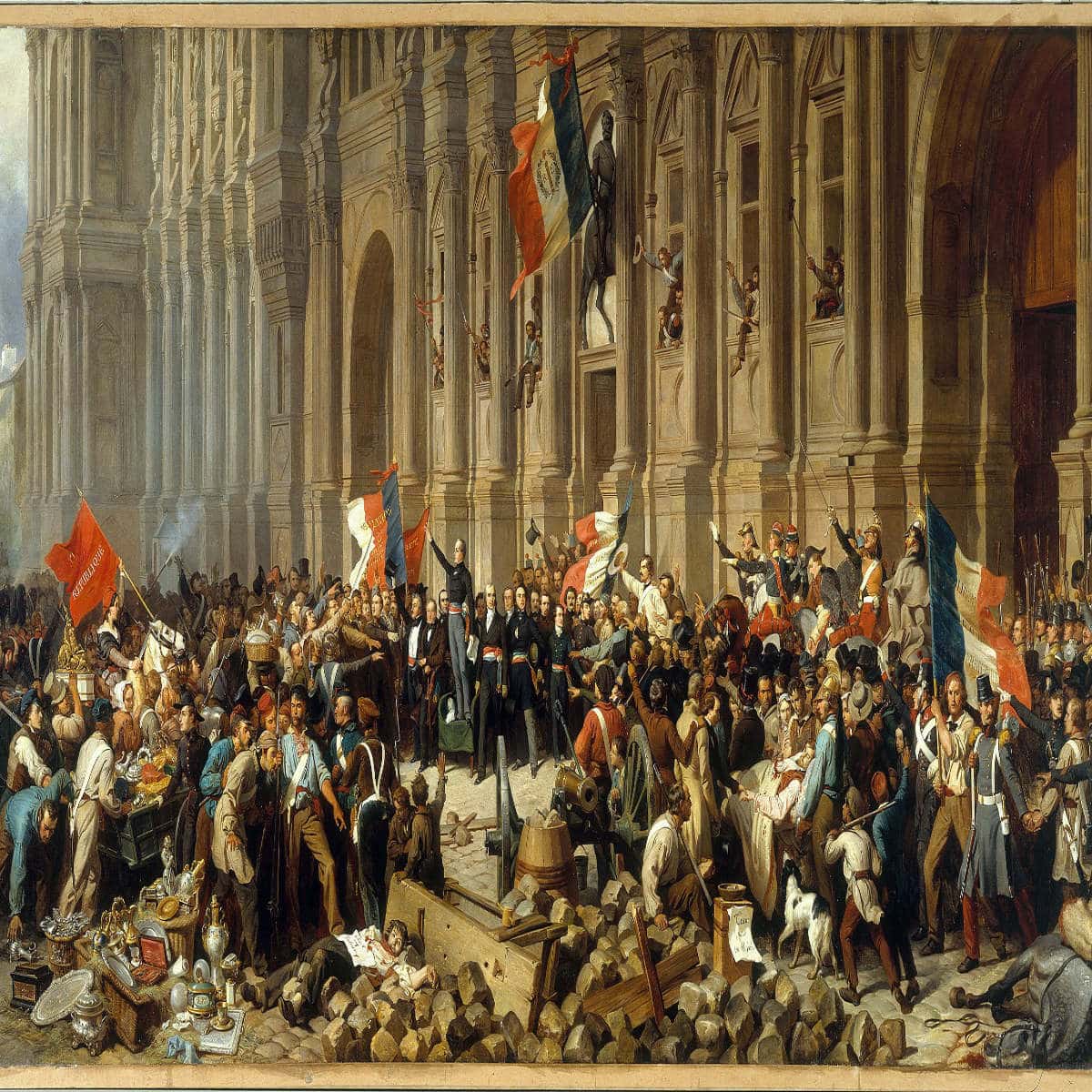Like in many countries around the world, May Day on 1er Mai (meaning “the 1st of May), is a public holiday in France. Celebrating the start of spring, the occasion has merged with the International Workers’ Day to also celebrate labor and union rights, and the many benefits they fought for.
Known as Fête du Travail (meaning “celebration of work”), the annual holiday will see large demonstrations held throughout Paris and in larger towns across France. This is a public holiday like no other.
With shops and businesses remaining closed, street protests are organized by unions and political parties to campaign for workers’ rights and other social issues.
While both and left-wing and right-wing groups jockey for the microphone, the rest of the French population has the day off to enjoy the sun after a long and cold winter and offer each other a token of good luck.

Public holiday for the coming of Spring
Everyone loves a holiday, and the French are no different. May Day on the 1st of May has the added benefit of being next to another French holiday: 8th of May for Jour de la Victoire en Europe (Victory in Europe day after WWII).
Jour férié
English translation: Public Holiday
As you can imagine, with two holidays so close together, there is a lot of faire le pont, meaning “making a bridge” or stringing together a series of holidays and weekends together for a longer holiday. (Yes, the French are masters of this habit and have a specific saying for this.)
If you are trying to reach anyone at the office in France during this period, be prepared to twiddle your thumbs for a bit. And if you happen to be in France on May Day, be prepared to see all shops, restaurants, and grocery stores closed. A holiday really does mean a holiday!
Muguets for luck
Beyond holidaying and street protests, the most important tradition for Fête du Travail is and May day is offering a bouquet of flowers to friends and family for luck and superstition. (Unlike the U.K., there is no maypole dancing tradition in France for May day.)
Lilies of the valley (known in French as muguet) are flowers that grow at the start of spring, and thus are ideal for celebrating the start of may. In France, you will notice that they are sold by florists, grocery stores, and street vendors all over town.

The tradition dates back to Greek times when wreaths of flowers were hung at the entrance to houses. In Roman times at the start of May, flowers were offered, the Florales, in honor of Flora, goddess of flowers.
More recently, the offering of flowers dates back to the Renaissance when it was customary, in the countryside, to offer a branch to chase away the curse of winter. In 1560, King Charles IX visited the Drôme countryside where he was offered a sprig of muguet. The following year he gave a bouquet of lilies of the valley to the ladies of the Court, as a good luck charm. (You can read more about French royals here.)
The habit caught on and became massively popular in France. These days, the occasion is such a big deal (and big business) that the government issues licenses for who can sell muguets and who cannot.
Union and Labor Rights
Along with the spring, it is also a day that has become a day to celebrate union rights and labor laws in France. Unlike the U.S. and Canada which celebrate Labor day on the 1st of September, the date of 1er Mai for Fête du Travail dates back to the late 19th century.
In 1889, exactly 100 years after the French Revolution in 1789, a French politician named Jules Guesde created the fêtes du Travail on every May 1. It was to be a day of demonstration, with the aim of reducing from the working day to eight hours a day for 6 days, leaving Sunday as a day off.
Those May Day protesters wore a red triangle on their chests, with the three sides representing the division of the ideal day in three equal parts: work, leisure, and sleep. Eventually the triangle has been replaced by the rosehip flower, and then a small bouquet of the muguet tied with a red ribbon.
On April 24, 1941, under German occupation, Marshal Pétain officially established May 1 as “Labor and Social Concord Day” applying the motto Travail, Famille, Patrie.
After the war, the holiday disappeared, but soon made a reappearance as the former resistance fighters reorganized into unions and communist parties gained power.
By the 1960s, French workers organized and fought to expand their working and holiday rights, eventually introducing the 35 hour work-week and minimum 5 week holiday that employees in France have become accustomed to, and for which it has become famous.
Street Protests and Demonstrations
These days on May 1st, the large national unions such CGT, CFDT, and Force Ouvrière, organize their members into nationwide protests, the largest of which take place in Paris. Far-right wing groups like the Front National also usually protest on the day, as well as various political parties like the Communists and the Ecologists.
With banderoles and signs, demonstrators are given authorization to march from Place de la République in Paris to Place de la Nation or Place du Châtelet.
For locals, the most amusing part tends to be the number counts issued by each organization compared to that issued by the police. (Eg. the Police will say 2000 protesters, and the union will typically multiply that figure by 3 and say 6000 protesters. It happens without fail at every protest, with newspapers and TV reporters dutifully reporting both figures.)
These demonstrations do sometimes descend into violence however, so bystanders and locals usually take care to avoid the area the protests are held in.

So will you be headed to Paris for the 1st of May? If you enjoyed reading about May day in France, you may enjoy reading about more French public holidays and quirky celebrations. A bientôt!
¹ Featured Image: Wikipedia Commons




